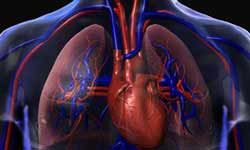Pulmonary function tests are a group of tests that measure how well your lungs work: their ability to hold air, move air in and out, and to exchange oxygen and carbon dioxide. These tests can be used to diagnose some conditions, like asthma, chronic obstructive pulmonary disease (COPD), and lung fibrosis, and they can measure how severe the lung problem is, or how well a treatment is working.
Lung function tests include spirometry, which measures how much air you can breathe in and out, and how fast you can breathe out; lung volume measurements, which reflect how stiff or elastic the lungs and rib cage are; and diffusion capacity, which measures how well the oxygen you breathe transfers into your bloodstream. While pulmonary function tests don't necessarily identify the specific cause of your breathing difficulties, they can characterize the nature of the particular lung problem, which helps doctors arrive at a diagnosis. For example, abnormal flow rates might suggest asthma or COPD, pulmonary fibrosis might cause the lungs to be particularly stiff, and a weak diaphragm and respiratory muscles could suggest a neuromuscular disease like myasthenia gravis or Guillain-Barré syndrome.
Advertisement
These tests are usually done on an outpatient basis, in a special exam room or lab that has all the measuring devices and equipment necessary to carry them out. Most often, a specially trained respiratory therapist or technician will guide you through the series of tests that involve inhaling and exhaling into a tube connected to a recording machine. Sometimes, spirometry may be done in your doctor's office. A peak flow meter is a small, hand-held machine often used to monitor asthma control, that measures how fast air can be exhaled, and can be used anywhere.

